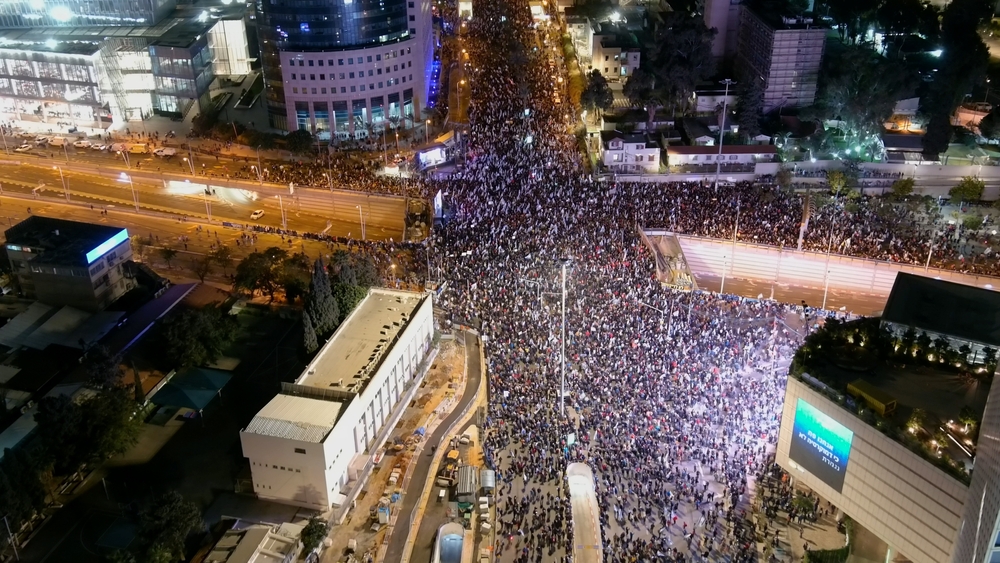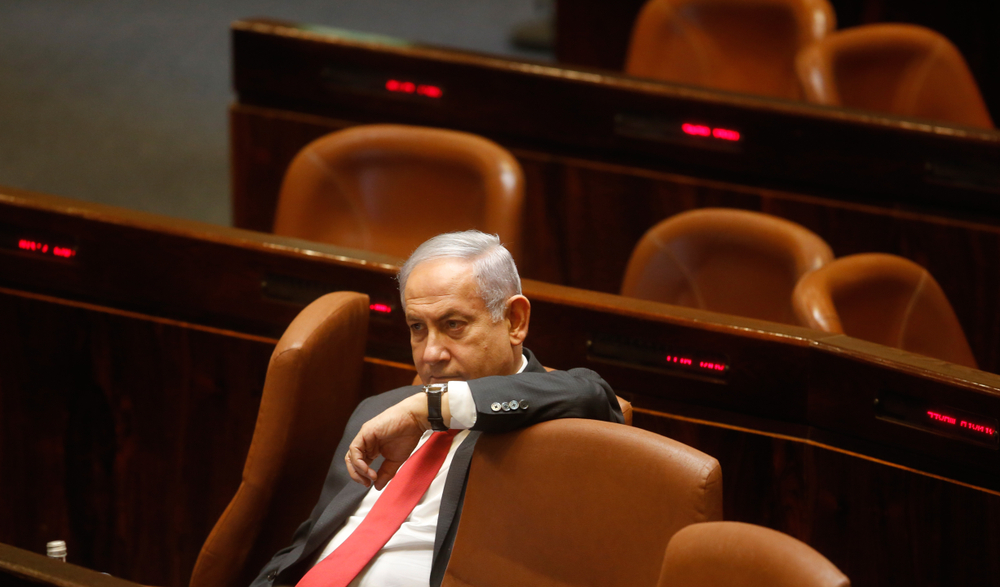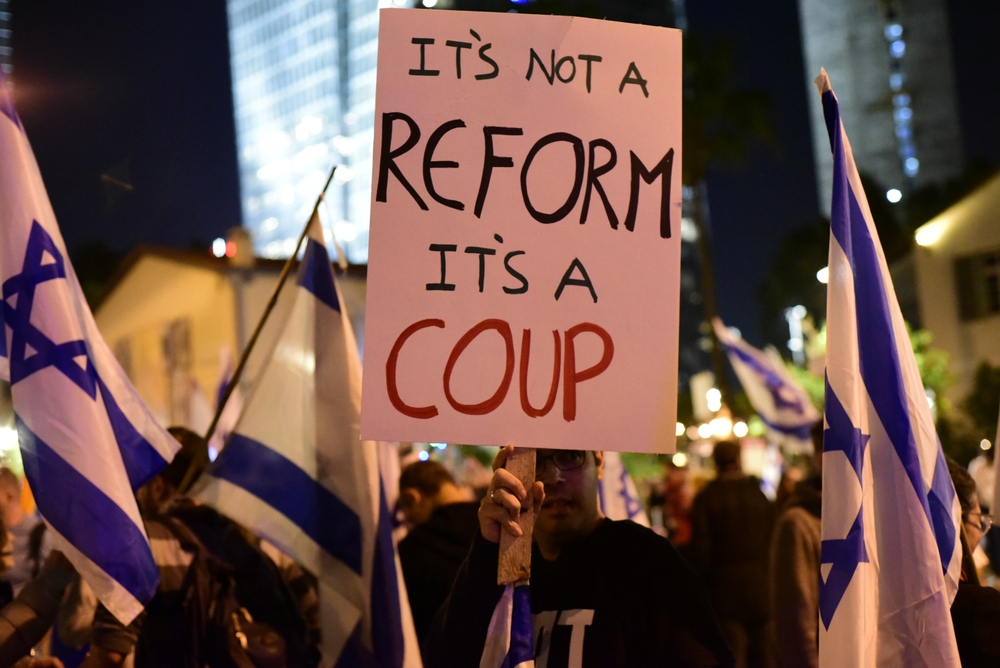Months-long protests and heated divisions will come to a head in an Israeli Knesset vote that has triggered a domestic threat emergency in Israel.
The nation has already seen the largest protests in its history. Today, 150 major firms, including banks, are striking ahead of the vote. On Sunday, tens of thousands of protesters marched from Jerusalem to Tel Aviv to protest the proposed legislation. Sunday’s protests followed hundreds of thousands of Israeli citizens protesting over the weekend across the country.
Protests and divisions over these proposed laws have polarized Israeli society and triggered the most significant domestic threats to the nation since its birth in 1948.
Thousands of reservists, including air force pilots, have threatened not to volunteer for service. These reservists are critical to the nation’s offensive and defensive abilities. Additionally, former heads of Israel’s security services, chief justices, and prominent legal and business figures have been vocal against the proposed reforms.
The executive director of the Washington Institute for Near East Policy called the fight over the judicial plan “the clash of the century” within Israel. Multiple commentators and even former national leaders within Israel have warned that the heated divide over these proposed measures is leading the country toward civil war.

These protests have been ongoing for months but subsided in March when Prime Minister Benjamin Netanyahu paused the reform efforts. This move came after protesters successfully shut down parts of the national economy and halted outgoing air traffic. Failing to reach a compromise since then, Netanyahu said he plans to move forward with the vote today.
Israel’s President, Isaac Herzog, described the situation this weekend as an “emergency” as he scurried to find a compromise between the different parties.
Israel Judiciary Reforms
The issue at the core of these protests and growing unrest in Israel is known as the “reasonableness law.” A proposed set of reforms will amend Israel’s quasi “Basic Laws” and limit the judiciary’s oversight of the government.
Essentially, the proposed reforms will counter the checks and balances Israel’s judiciary can present to Prime Minister Netanyahu’s government and centralize more power into the hands of his political party’s hand. If the judiciary believes the government has gone “too far,” the Supreme Court can overturn government decisions. These new reforms, if enacted, would prevent the judiciary from checking government moves deemed excessive.
The vote is seen by many as a showdown between hardline religious nationalists who support Netanyahu against large segments of Israeli society.
These reforms, a series of laws, are currently expected to pass.
A recent poll aired by the nation’s national broadcaster found 46% of Israelis opposed the amendment and 35% in favor, with 19% undecided.
Prime Minister Benjamin Netanyahu

Benjamin Netanyahu is serving his sixth term as Prime Minister in Israel, making him the longest-serving Prime Minister in the nation’s history. On Sunday, he was admitted to the hospital to repair a pacemaker. Upon exiting the hospital, he promised to be in the Knesset for the vote on Monday and said he was in excellent health.
President Joe Biden, leader of Israel’s most important ally in the US, recommended delaying the divisive vote.



